- 9 mins read time
- Published: 22nd March 2021
Yemen, six years at war
Ammar bin Yasser camp
Home to 1,785 people, families here have fled terrifying violence in search of safety. Oxfam is helping people stay safe from disease in the crowded camp by training heath volunteers, providing clean water and handwashing stations, fixing toilets and distributing hygiene kits full of essentials.
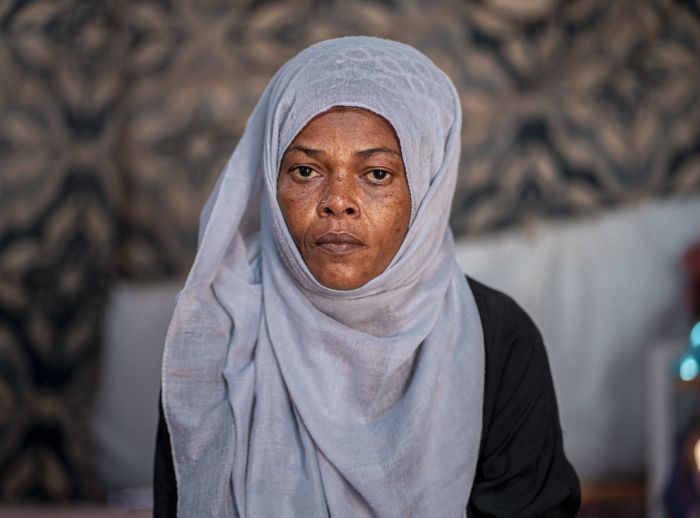
I was living in Al Hudaydah. My children were going to school. We fled our home because of war, as we were vulnerable to the bombing and hearing its roar over our heads from inside the house. We were living in constant fear ... when we saw the shrapnel and other exploded objects flying into our houses, we were afraid for our children to be hit by it, so we fled. Leaving behind our homes, clothes and our floor mattresses, we fled with our children.
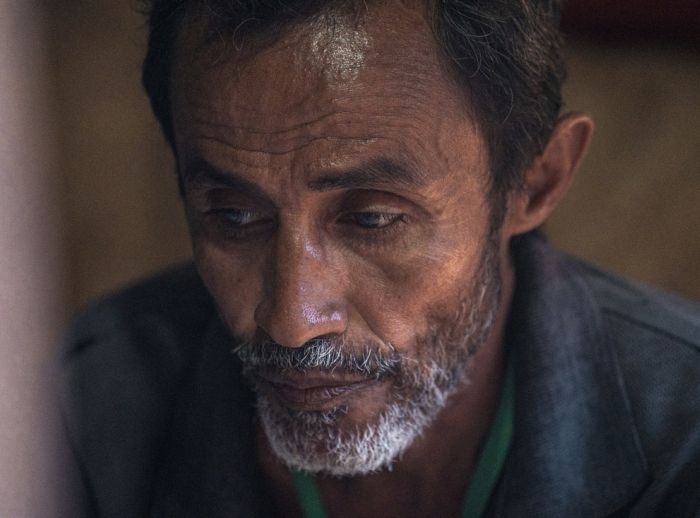
When I was in Al Hudaydah, I had a house. I was earning a living. My children were going to school. My sons were in the first, second and third grades, my daughter in the sixth grade. The school was close to our home and well-equipped. I was capable of providing them with school bags, textbooks and notebooks, everything they needed, even giving them their daily school expenses. But here, I can't enrol them in school because they will say, 'Dad, where is our daily school expenses?' I am incapable of providing 100 YR.
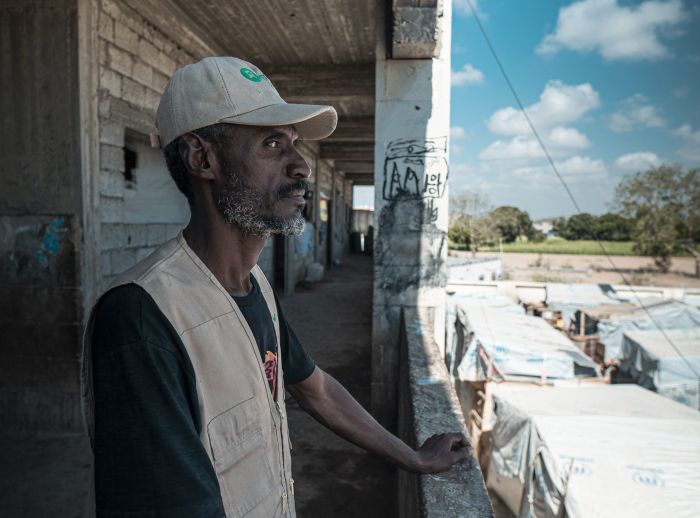
We came from rural areas and suffered to get to Aden. Before I fled Al Hudaydah I was working for a company, I was comfortable, and I had a house. When the war broke out, the area that I bought the house became a military outpost and the job that I had at a Yemani company, I lost it because factory that I was working in was bombed. Consequently, the company laid us off. I became unemployed, my sons have dropped out of school and I lost my house as the area became a military outpost.
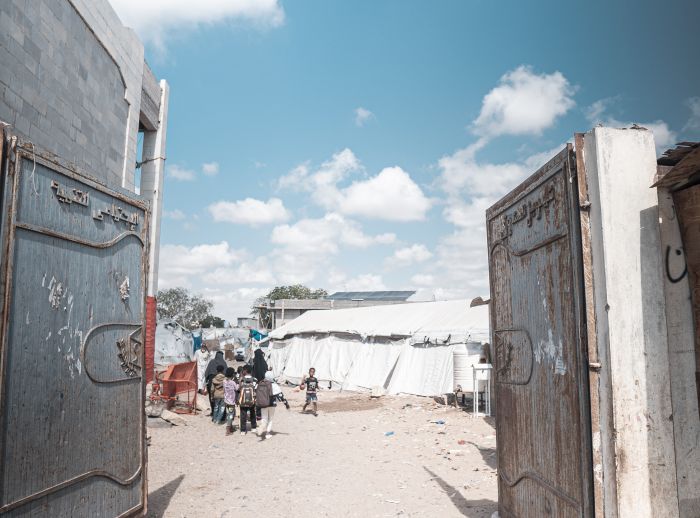
Oxfam's work in the camp involves latrine rehabilitation, water points construction and rehabilitation, handwashing facilities installation, distribution of cleaning tools and bins, and hygiene kit distribution. In addition, community health volunteers are recruited and trained in health promotion to educate and raise awareness of good hygiene practices within the community.
Isra Specialist Hospital
Six years of war have devastated Yemen’s health care system. And now, Covid-19 intensifies the situation. With a shortage of staff, supplies and electricity, those hospitals that remain open, or even standing, struggle to meet the needs of Yemen’s millions of sick and starving people.
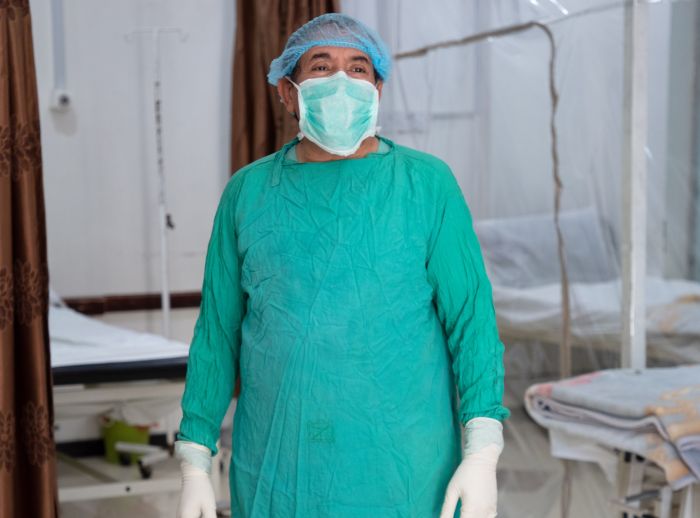
As a poor country, in addition to the war, the health situation is very poor due to the lack of resources and the immigration of doctors, on top of the fact that the citizens cannot pay the high costs of treatment, and all this has worsened after the war.

Among the challenges that the hospital faces is the lack of fuel, because all our work relies heavily on electricity such as sterilisers, lighting, and devices that are used during operations and surgery. The other challenge is the lack of medicines and materials needed to conduct operations, because we are under siege, and this siege causes some materials to be cut off.
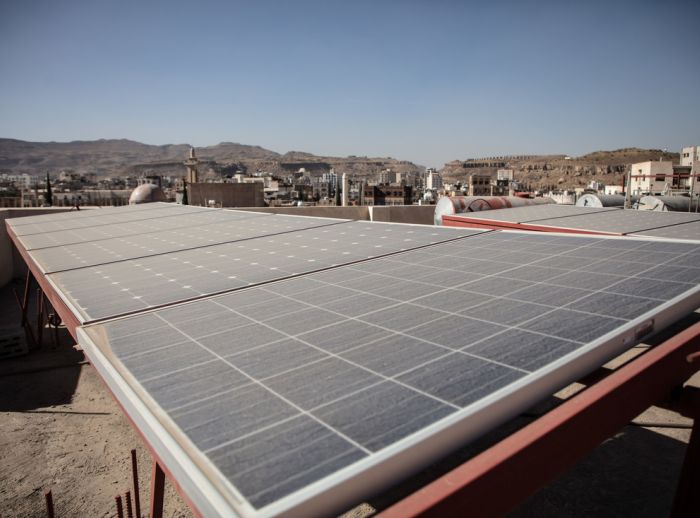
According to the World Bank, Yemen has the lowest level of electricity connection in the Middle East, with only 40 percent of the population having access to electricity. The current fuel shortage threatens to further exacerbate the humanitarian situation, also impacted by Covid-19. The shortages have led to an exorbitant rise in fuel prices on the black market across northern governorates and inflated the cost of water, transport, food and other goods. With the support of the United Nations Development Program (UNDP) and its local partner, Oxfam has provided 27 healthcare facilities across Yemen with solar micro-grids and solar-power refrigerators, benefitting more than 208,000 people.
Oxfam’s water project in Al Dhale’e city
Water is life. Without safe, clean water, disease spreads, and people die. And the relentless war means water systems go unmaintained or destroyed. But in Al Dhale’e city, Oxfam is working to deliver water to everyone.
Al-Dhale was one of the worst affected governorates by the conflict when it first escalated in 2015. Fierce fighting resulted in the destruction of basic public infrastructures, including the public water supply network. Even before the conflict escalated, the water scheme that fed Al-Dhale city had started to collapse due to lack of money to maintain it. In the midst of conflict, the water facilities have been further exposed to robbery and looting. This comes on top of the physical damage the conflict has left on buildings and water tanks.
Oxfam coordinated with the Local Water and Sanitation Corporation in Al-Dhale for the rehabilitation of some components of the water scheme. Work involved rehabilitation of the three re-pumping stations in Hajar, Al-Soda and Sanah areas and the connection of two other wells with the re-pumping station in Al-Soda. Oxfam also rehabilitated a supply line measuring over 10km and replaced a supply pipeline that was over 1km long. Provision of fuel was also critical in ensuring smooth water supply to the elevated water tank of Al-Dhale city.
The most challenging part of rehabilitating the water supply scheme was bringing water through this network of pipes and re-pumping stations to the tank in Al-Dhale city. Funds from UNICEF, KFW and other Oxfam affiliates allowed for the success of the project, bringing water to the tank for the first time in nine years.
In all, 20,000 people are now able to access running water who couldn’t before. However, in Al-Dhale city, water still can’t yet reach residents because the city’s water distribution network has yet to be fixed and the local water corporation needs fuel to operate.
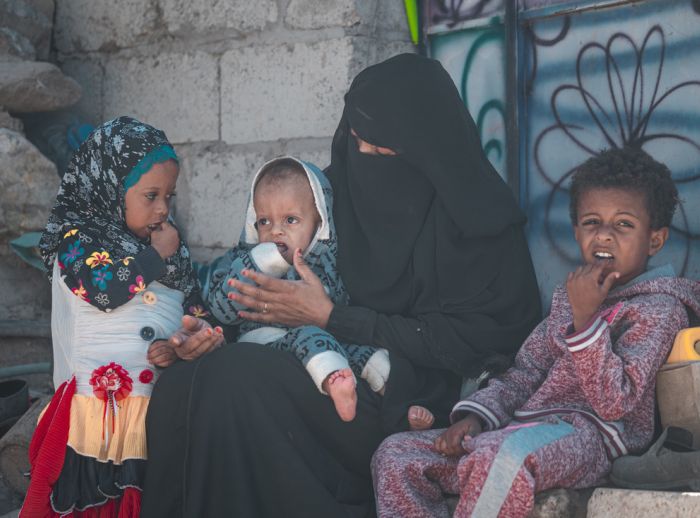
Before the implementation of the water project, our life was in a miserable condition. We were fetching water from the well and carrying it using animals. Sometimes we were carrying jerrycans on our head. The water from the well was polluted with waste but despite that, we were fetching the water for drinking. When the water project was implemented many things changed. We have saved the money that we were using to purchase water. Because we can access water now, we can provide a lot of things such as vegetables, food, medicines and other things.— * Name changed to protect identity

We are suffering from malnutrition and hardship in accessing water. Difficulty in accessing water and the lack of the water system. Despite the availability of storage water tanks in our area, there is hardship in affording the cost of buying water. If they wanted to buy water from the black market, they find it too expensive, which forces them to be indebted. If we can access clean water and a water system that distributes to our homes, this would greatly help us. The money we are spending on purchasing water, it will help us in nutrition and education, in improving children’s education skills. This is what most of the people and residents are suffering from. Because now the cost of water has become more expensive than oil. When we purchase clean water, we find that its price is more expensive than petrol. My dreams are every member’s dreams in this community. To live in safety and the availability of services. To have the ability to provide education to our children. To have hospitals in the area and most importantly, the accessibility of necessities, such as food and water and education.
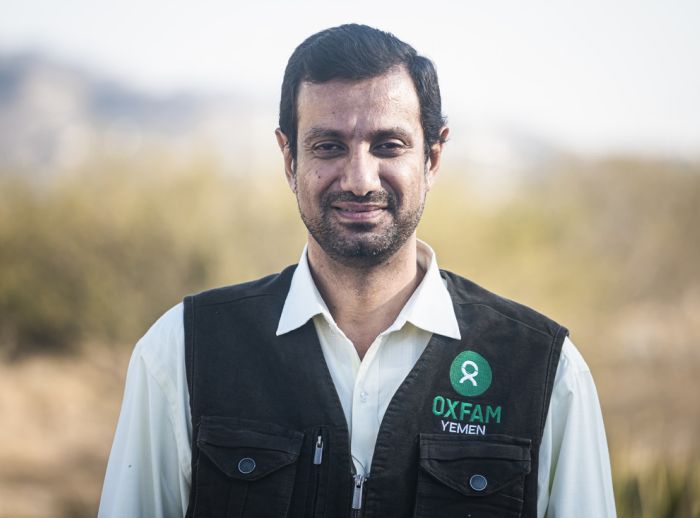
Yemen suffers from a lack of water. The unstable security situation, wars and revolutions that are occurring in Yemen, have led to many problems in rehabilitating the infrastructure and the water projects. Many projects have been suspended because of the war. Also, many people have fled because of the lack of water in their area. The Al Dhale’e water project implementation started in 2006 but the project was suspended in 2011 due to the political situation. The project was suspended for nine years. For that reason most of the infrastructure such as water pumps, pipes and water storage tanks have collapsed and eroded because of the war of 2015. Oxfam has rehabilitated the water main lines and stations to pump water to Al Dhale’e city which resulted in the rehabilitation of the infrastructure as the first stage of the project. But there are a lot of things remaining such as water and network distribution. It’s a great feeling that we cannot describe. When we see the water flowing from the taps, or a household accessing water and the suffering is alleviated from the people. We used to see the women fetching water from the water well using jerrycans and animals or transporting it by water truck. But now we are striving to enable them to access it from their houses. I have a strong motive to keep implementing this project until water access is available to all Al Dhale'e. Then we will say, 'Thankfully the water has reached Al Dhale’e and everyone will be happy.'




